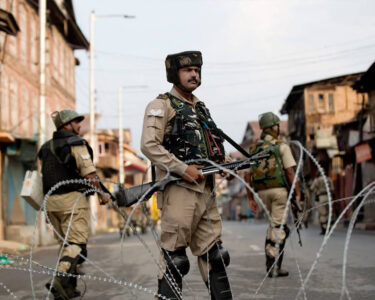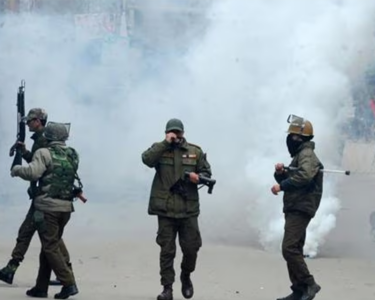Introduction
The nature of warfare has evolved beyond traditional military confrontations. Fifth Generation Warfare (5GW) represents a paradigm shift, focusing on non-traditional tactics that target the cognitive domain—beliefs, perceptions, and decision-making processes of adversaries. This article explores the characteristics of 5GW, its implementation in geopolitical conflicts, and the implications for national security and international stability.
Defining Fifth Generation Warfare
5GW is characterized by:
Asymmetry: Conflicts where the parties involved have unequal military capabilities, leading the weaker side to employ unconventional tactics.
Non-Kinetic Operations: Actions that do not involve direct physical force but aim to achieve strategic objectives through other means.
Information Dominance: Controlling and manipulating information to influence perceptions and behaviors.
Key Tactics of 5GW:
1. Cyber Warfare
- Hacking and Cyber Attacks: Targeting critical infrastructure, government systems, and private sector networks.
- Espionage: Stealing sensitive information for strategic advantage.
2. Disinformation and Propaganda
- Fake News: Spreading false information to confuse or mislead.
- Psychological Operations (PSYOPs): Techniques aimed at influencing the emotions, motives, and reasoning of target audiences.
3. Economic Warfare
- Sanctions and Trade Restrictions: Using economic measures to weaken adversaries.
- Currency Manipulation: Influencing currency values to create economic instability.
4. Cultural and Social Influence
- Soft Power: Leveraging cultural assets to shape preferences and values.
- Proxy Actors: Utilizing non-state groups to carry out operations indirectly.
Implementation in Geopolitical Conflicts
Russia’s Hybrid Warfare – Blending conventional military power with cyber attacks, disinformation, and political manipulation, as seen in Ukraine and other Eastern European countries.
Cyber Attacks by State and Non-State Actors – Nations like China, North Korea, and Iran have been accused of conducting cyber operations against other states.
Terrorist Organizations – Groups like ISIS have employed sophisticated online propaganda to recruit and radicalize individuals globally.
Implications for National Security
Blurred Lines Between War and Peace – 5GW tactics can be employed continuously, making it difficult to distinguish between wartime and peacetime.
Attribution Challenges – Identifying the perpetrators of cyber attacks or disinformation campaigns is often complex, hindering response efforts.
Legal and Ethical Dilemmas – Existing international laws may not adequately address the nuances of 5GW.
Countermeasures and Strategies
Resilience Building – Strengthening infrastructure and systems to withstand and recover from attacks.
Intelligence and Surveillance – Enhancing capabilities to detect and monitor 5GW activities.
Public Awareness and Education – Informing citizens about disinformation tactics to reduce susceptibility.
International Cooperation – Collaborating with allies to share intelligence and develop joint responses.
Policy Recommendations
Develop Comprehensive 5GW Doctrines – Establish clear strategies and guidelines for addressing 5GW threats.
Invest in Cybersecurity – Allocate resources to protect critical digital assets and infrastructure.
Legal Frameworks – Update international laws to reflect the realities of modern warfare.
Conclusion
Fifth Generation Warfare represents a significant challenge to global security. Its reliance on non-traditional tactics requires a rethinking of defense strategies and international cooperation. By understanding and adapting to these new forms of conflict, nations can better protect themselves and contribute to global stability.
References
[1] McCuen, J. J. (2008). Hybrid Wars. Military Review, 88(2), 107-113.
[2] Kaldor, M. (2013). New and Old Wars: Organized Violence in a Global Era. Stanford University Press.
[3] Singer, P. W., & Brooking, E. T. (2018). LikeWar: The Weaponization of Social Media. Houghton Mifflin Harcourt.




